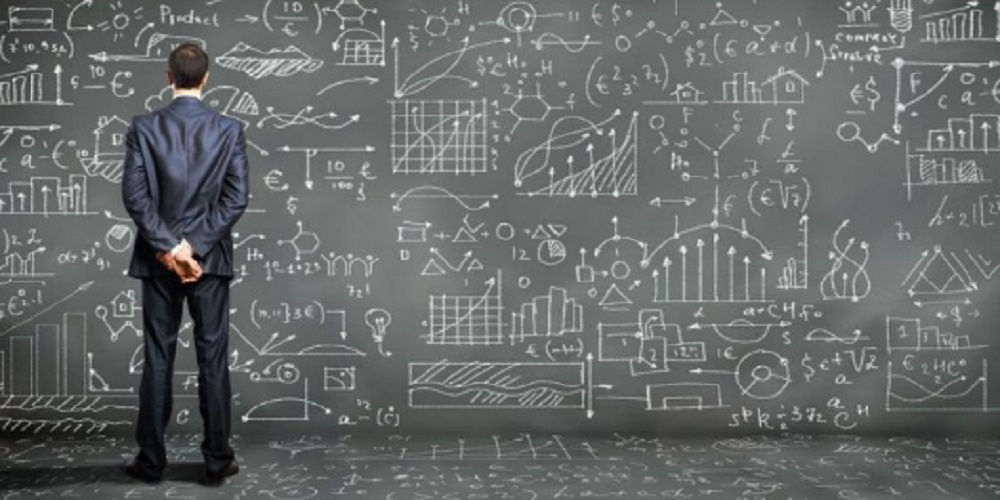What are cognitive skills?
We explain what cognitive skills are and their intellectual abilities. In addition, types of cognitive skills and examples.
-
What are cognitive skills?
It is known as cognitive abilities or cognitive abilities to the aptitudes of the human being related to the processing of information , that is, those that involve the use of memory , attention, perception, creativity and abstract or analogical thinking.
The thinking human is the result of a complex and abstract series of processes, ranging from capturing certain stimuli, interpretation, stored in memory and its translation into a system of values and concepts which subsequently emerge an answer.
Cognitive skills have a lot to do with the notions of intelligence , learning and experience, thanks to which an individual can grow cognitively and learn to perform complex tasks or foresee future situations in relation to the experience.
Thus, this type of skills corresponds to a set of specific intellectual abilities, which a person uses more or less throughout the different situations of his life , such as:
- Forecast . The ability to evaluate the consequences or implications of an action before carrying it out, thus being able to give it up if these consequences were inconvenient or, perhaps, to stop them when they had seen them coming beforehand. This ability is key for the survival of the individual and for their integration into society.
- Planning . The ability to foresee a series of consequences in the future based on the actions undertaken and, therefore, to set goals and objectives derived from these actions. It is the ability to choose consequences and achieve future purposes.
- Evaluation . The ability to judge individually the suitability or danger of an action, or to know how close you are or not to the desired goal, in short, to be aware of where you are and correct the behavior to reach the desired point or avoid The unwanted
- Innovation . The ability to find alternatives or new paths towards the desired goals, based on past and memorized experiences, taking into consideration the understanding of the world that is possessed. This ability is also key to the evolution of abstract thinking and to avoid the repetition of previous formulas, however successful they may have been.
It is a central issue in the study of human life, since our cognitive abilities were precisely those that guaranteed the survival of the species from its early origins and its evolution over two million years (more or less ) until reaching the level of intellectual, technical and scientific development that we know today.
-
Types of cognitive skills

In general, there are two types of cognitive abilities:
Cognitive skills . They allow the elaboration of knowledge , operating directly on the information collected by the senses. They usually consist of the following skills:
- Attention . Capacity to capture details and concentration or focus.
- Understanding . Ability to translate what is captured into their own language, elaboration of what is perceived, classification of reality, etc.
- Development . Formation of one’s own thought in response to what is perceived, that is, formulation of an answer.
- Recovery . Memorization of the experience so that it serves as the basis for future identical or similar experiences, being able to recover what has been learned even without being in the presence of the stimulus in question.
Skills metacognitive . Those whose objective is not the perceived reality, but the cognitive processes themselves, thus allowing the ability to think about the way they think, to put it in some way. Thus, these skills allow the control, explanation and transmission of lived knowledge, as well as the formulation of a useful language for it and other complex systems of representation of ideas.
-
Examples of cognitive skills

Some cognitive abilities may be the following:
- Linguistic ability . Talent in the use of language and representation systems through articulated sound or its physical transcription (writing). This includes: syntax, lexicon, pragmatic, etc.
- Attention span . The possibility of perceiving more than others perceive or being much more aware of small changes in the environment . This includes: concentration, selective attention, speed of response, etc.
- Capacity for abstraction . The talent to build or interpret complex systems of signs or mental projections, and translate them into concrete operations. For example: spatial orientation, imagination, arithmetic reasoning, etc.
- Deductive capacity . The ability to deduce or infer events from portions of the total information, to imaginaryly complete the perceived or intuit situations. For example: logical reasoning, categorization, similarities and differences, formal logic, intuitive reasoning, etc.




